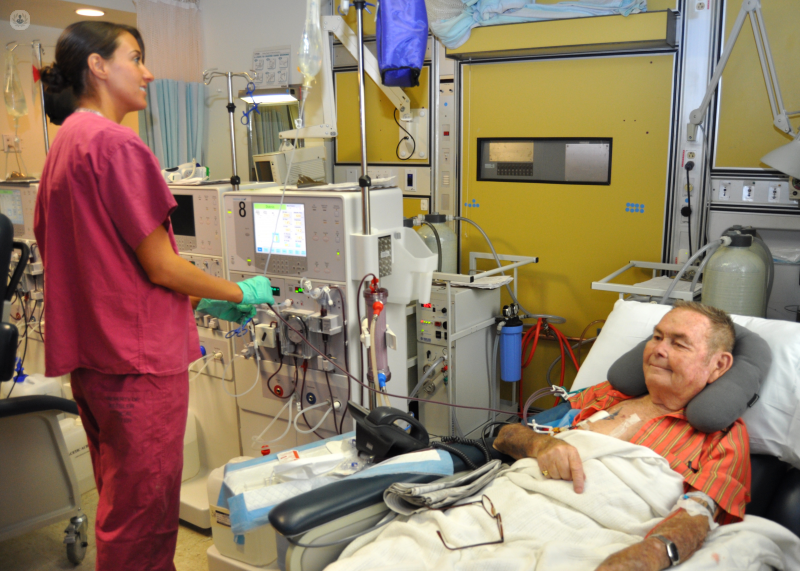What conditions can dialysis help to manage and when is it needed?
Written by:The kidneys are responsible for filtering waste substances out of our blood and expelling them as urine. However, kidney failure can mean that a patient needs to have their blood filtered by a machine to survive. This is called dialysis. Respected nephrologist Dr Andrew Palmer is here to answer all the questions you may have about this procedure.
Is dialysis a permanent solution for managing your kidney problems?
There are two forms of kidney failure – acute and chronic.
Acute kidney failure occurs after a sudden event like serious infection, surgery, or bleeding. Generally, the kidneys recover and patients only need dialysis to support them until this happens.
The remainder of patients on dialysis have chronic kidney disease, which has usually come on over a number of years and is irreversible. This means that when they start dialysis there is no treatment to recover kidney function and they have to permanently remain on dialysis unless they have a kidney transplant.
Learn more about treating kidney failure
What does dialysis feel like and what could you expect from a dialysis session?
The majority of patients have little in the way of symptoms on dialysis and may go to sleep, read a book or watch television. Patients who feel less well on dialysis usually have other conditions such as heart disease or diabetes. It is also important to ensure someone on dialysis keeps to their recommended diet and fluid restriction to permit a smoother dialysis with less fluid having to be being removed. Patients who are older (many are over 80 years of age) are more likely to feel tired and washed out after dialysis and need to rest.
How often do you need to have dialysis?
Most patients need dialysis three times per week and this is considered the optimal number of sessions each week. There is evidence that patients who dialyse this frequently have fewer complications, better control of blood pressure and less frequent admissions to hospital. There are a small number of patients with some residual kidney function that can dialyse less frequently, especially if they are of small build and are careful with their fluid and diet.
How long can you live on dialysis if you have kidney failure?
Patients can live on dialysis for long periods of time – occasionally for over 30 years. It partly depends on how old patients are when they start dialysis and the survival rate of patients is usually determined by any other medical conditions they might have. The length of time on dialysis may also be determined by the time waiting to receive a kidney transplant. New machine technology and excellent nursing care has greatly improved dialysis survival.



